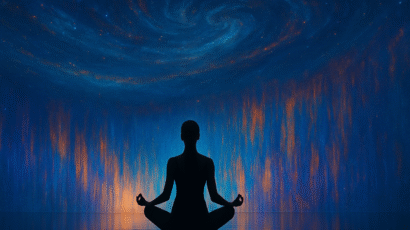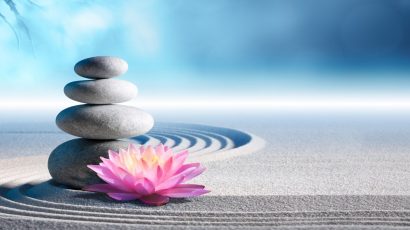COVID-19 pandemic: Some top coping strategies and why they work

Restrictive measures aimed at curbing the new coronavirus pandemic have changed the lives of people all over the world in drastic ways. A look at what do people do to cope with the COVID-19 pandemic and restrictive measures
People from all over the world have been reporting that current restrictive measures taken in response to the COVID-19 pandemic have significantly altered the daily course of their lives.
A survey conducted by Medical News Today (MNT) on social media indicates that in the United States, at least, many individuals have turned to unhealthful coping strategies, such as increased alcohol consumption or the use of other recreational substances.
The same survey also suggests that a majority of the US respondents were actively seeking to improve their situation by taking affirmative action.
Exercise, yoga, and meditation
Many people told MNT that exercising indoors or outdoors, as well as practising yoga, meditation, or forms of prayer have helped to keep them grounded and focused.
One reader told us that, for them, “walking and running are great stress reducers after long days at work,” while another mentioned “yoga, books, and praying” as their go-to in these uncertain times.
Diana, from France, told MNT that it is thanks to regular exercise that she now feels less anxious and more optimistic. “I have been exercising every morning with my neighbour, so for the past few days or past week, I have been feeling super positive, and everything’s been O.K.,” she said.
“We are permitted 3 hours for any activity, either alone or with one other person,” Christina, from Greece, told us. “I use this option to go out every day for a run. Therefore, physically and mentally, I feel very good.”
It is not surprising that these activities have benefited the mental and physical well-being of people worldwide during the pandemic.
Numerous studies have demonstrated that physical activity, yoga, meditation, and prayer are all linked to better overall health.
Researchers have shown that exercise could prevent depression, boost aspects of our memory, reduce inflammation, and even increase lifespan.
Yoga and meditation could have a direct impact on physiological drivers of stress and resilience to hardship, while the simple presence of religious faith in someone’s life has ties to longevity.
Enjoying nature in any form
In countries with less stringent public health emergency measures in place, many people have been taking advantage of the opportunity to take walks in nature.
One reader, reaching out to MNT on social media, said: “I go for a walk every day, and I really appreciate nature [and] fresh air.”
Researchers have linked walking, as a form of casual, non-strenuous exercise, to a variety of health benefits, including lower blood pressure, improved psychological well-being, and a longer lifespan.
Some of our readers have also said that they try to take advantage of nature and fresh air in any way they can. This might be by stepping outdoors for a while or just sitting out on the balcony.
“Since the weather got warmer, [my family and I] have started going out on occasional walks in the forest near our house,” Mihai, from Romania, told us.
“During the day, [our young son] stays out on the balcony for a while, he tries to [entertain himself by spotting] cats, dogs, pigeons,” he added.
“One of the main lifelines for me has been reading in the garden in the sunshine,” another MNT reader commented on social media.
Many readers have also told us that they have taken up gardening as a means to enjoy the fresh air and sunny weather, if they have access to a garden or a balcony.
While gardening can certainly be calming, it may bring many health benefits besides stress reduction. An older study published in The Medical Journal of Australia associated gardening with a 36% lower risk of developing dementia.
And a study published in the British Journal of Sports Medicine found that gardening also has associations with a lower risk of cardiovascular events such as stroke and heart attack.
But even just taking a moment to admire nature can do wonders for our well-being — whether that be in the form of a potted plant, a fresh crop of cilantro grown on the window sill, or observing newly hatched baby ducks at the park.
A research paper published in the Journal of Positive Psychology in 2017 found that simply stopping to notice a bird or a tree has associations with a heightened sense of overall happiness.
Maintaining human connection
Perhaps one of the most challenging aspects of the current pandemic has been of the physical distancing measures adopted by many countries.
Readers from all over the world have told MNT that they are worried about family members and friends whom they cannot see in person. They mention how they miss being able to meet up and engage in fun activities with those they love.
Yet many of them have expressed a strong determination in maintaining that human connection despite all the obstacles.
Almost all of the people reaching out to MNT have said that they have regular phone calls or video calls with friends and family. Some have found ways of replicating the interactions they would typically have with their loved ones — over the internet.
Martina, who lives in Belgium, told us that she has been grateful for all the creative get-togethers that the people in her life have been planning:
“To cope, I take advantage of the many initiatives organised by friends and family to keep us together. I do yoga online with a friend who is a teacher every day. […] I see my boss and my colleagues every Tuesday for a virtual ‘coffee’ that [replaces] the ritual of our usual Tuesday lunch together. I ‘have lunch’ with my family on Zoom almost every Sunday.”
Some of the people we spoke to also noted that their employers have been taking steps to maintain their employees’ team spirit, and an atmosphere of collegiality.
For example, Mihai, in Romania, said that his company “has been organizing 2-weekly meetings of 30 minutes each, in which we discuss anything aside from work.”
“[That is] to reduce our sense of isolation,” he explained.
Studies suggest that long, deep conversations help us feel more connected and can enhance people’s sense of well-being. Social interaction may also help protect memory, according to some researchers.
Some experts have also linked lasting friendships and a good social life with better overall health and longevity.
Given all this, it is no wonder that frequent calls with friends, family, and colleagues provide a tangible sense of relief.
Playing, picking up skills, being creative
Readers who happen to be living with partners, family, or housemates, have also reported that playing board games helps them cope. Others play board games or computer games online with friends.
That, for instance, is the case of Ramona and Simona, who live in Sweden, and Stephen, in Canada, who told us that: “Socially, we’ve been doing video calls and playing online board games and video games with friends and family. We even took part in a Zoom ‘pub quiz’.”
Researchers have shown that playing and playfulness can help reduce stress levels in adults and increase their overall sense of well-being.
Some people have even linked board games to better brain function, and some studies have suggested that romantic partners who play together stay together, as the excitement and fun of board games help strengthen their bond.
Another favorite coping strategy from respondents all over the world is learning a new skill.
“I also spend a lot of time teaching myself web coding through a free online course, taking and editing photos, and brushing up on my French with Duolingo,” Stephen also told us, and other readers have sent us similar comments.
Research suggests that learning activities in adulthood may help improve life satisfaction and that learning new languages could help rejuvenate the brain.
All of these activities suggest that growth and adaptability have been key in facing the often life-altering circumstances that the COVID-19 pandemic has brought to everyone.
By scheduling frequent video calls with friends and sticking to a regular exercise routine, people have been doing their best to recreate their usual lifestyle at a different scale while relegated to their home environment.
Some, indeed, have gone to some lengths to do so. Misato, from Japan, told MNT that what she misses most is working from her favorite café, a place that stimulates her focus and creativity. So she has recreated it — at home.
“[C]afés used to be one of my favorite places to refresh my thinking and mood but, by analyzing […] why cafés made me comfortable, I made [a] café section in my room, which eventually reduces my stress, and I currently don’t feel any stress not going to cafés.”
– Misato, Japan
Some researchers think the pandemic may kickstart a boom of creativity, not just in individual contexts but also in diverse economic fields.
While challenging in many ways, the current pandemic may end up proving that humans have what it takes to find a way out of any crisis. Perhaps all that we need, in the end, are some creative strategies.
Courtesy: Medical News Today















